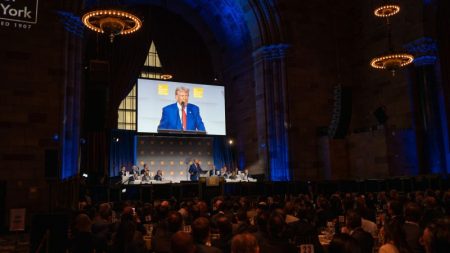Unlock the Editor’s Digest for free
Roula Khalaf, Editor of the FT, selects her favourite stories in this weekly newsletter.
China has launched an anti-dumping investigation into imported European dairy products, in the latest escalation of a trade dispute with the EU.
The investigation comes a day after the European Commission published a series of additional levies on Chinese electric vehicle imports, despite opposition from Beijing.
The Chinese commerce ministry said on Wednesday that its probe into EU dairy imports was prompted by complaints from domestic manufacturers over European subsidies. According to a statement, the investigation will cover “certain products” including creams and cheeses.
The move marked Beijing’s strongest retaliation yet against Brussels’ EV tariffs. China has already opened anti-dumping probes into French cognac and EU pork imports and has lodged a complaint at the World Trade Organization.
The bloc’s chief diplomat, Josep Borrell, said at an event in Spain this week that the EU “mustn’t be naive” but that a trade war was “maybe . . . unavoidable”.
The European Commission said that Brussels “takes note” of China’s decision to launch an anti-subsidy probe into certain dairy products and would analyse the procedure “very closely”.
“The commission will firmly defend the interests of the EU dairy industry . . . and intervene as appropriate to ensure that the investigation fully complies with relevant WTO rules,” it said.
The European Union Chamber of Commerce in China said Beijing’s action “should not be considered a surprise”.
“Regrettably, the use of trade defence instruments by one government is increasingly being responded to seemingly in kind by the recipient government,” the chamber said, adding that it hoped the investigation would “be conducted fairly and transparently”.
European dairy exports to China were valued at about €1.8bn last year, down from €2bn the year before, according to European Commission trade data, and accounted for about 9.5 per cent of the EU’s total dairy exports.
The Chinese dairy industry bodies claimed that imported EU dairy products had benefited from a total of 20 subsidy programmes. Germany is the bloc’s largest producer of milk, butter and cheese, followed by France.
The market share of imports in China’s infant formula market, where competition has increased and regulations have been tightened, fell from 51 per cent in 2019 to 44 per cent in 2023, according to Dutch bank Rabobank.
China’s declining birth rate has also forced domestic and foreign companies to push into new products in the country, such as those targeting older consumers.
Imports of milk powder and fluid milk have also fallen this year because of higher domestic production, according to estimates from the US Department of Agriculture in May.
“Growth in raw milk production continues to outpace consumption, creating an oversupply in the Chinese market,” the report said.
Additional reporting by Gloria Li in Hong Kong
Read the full article here



